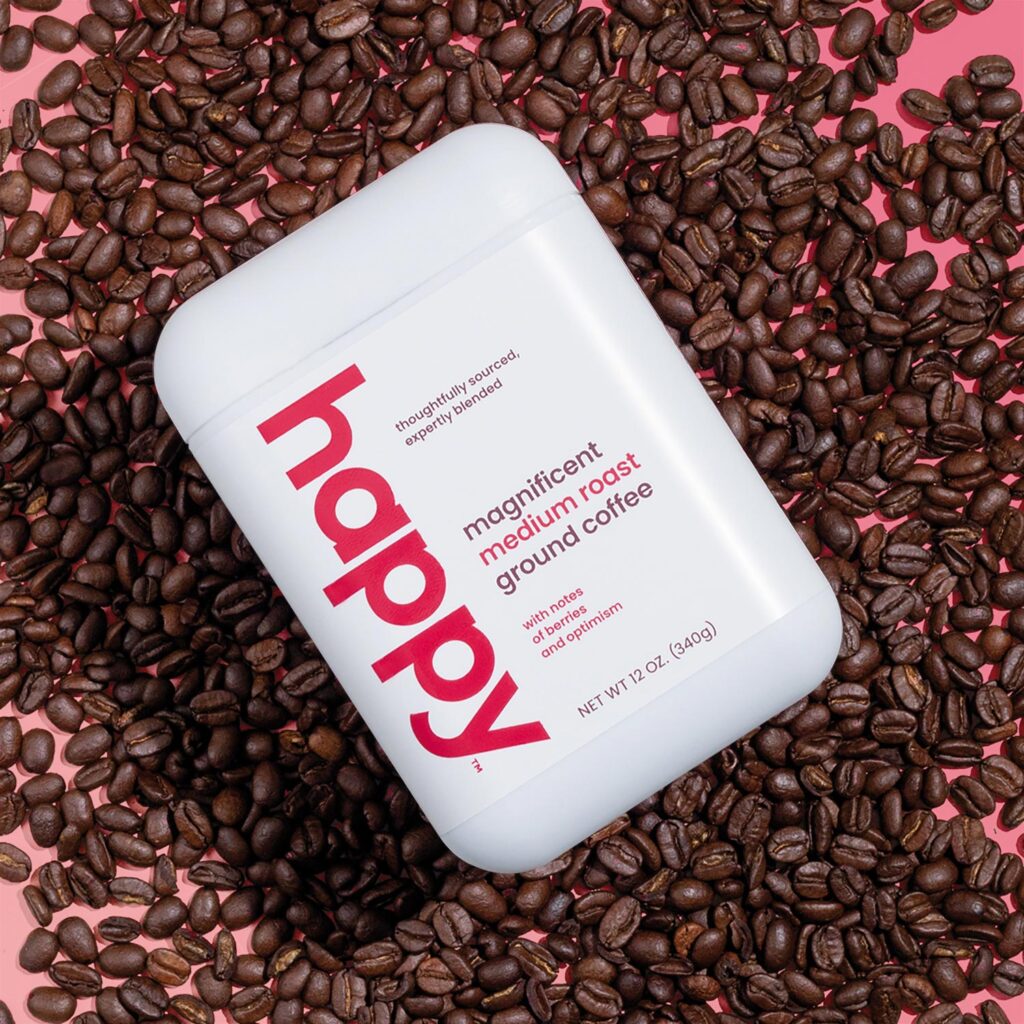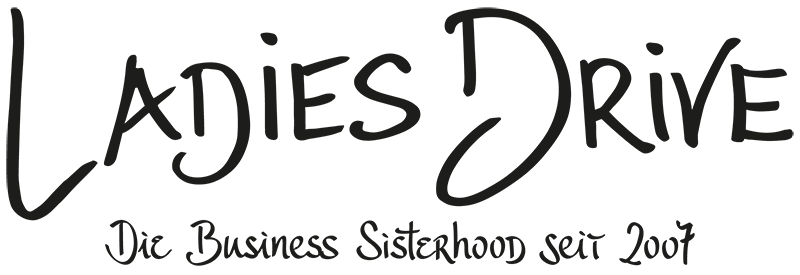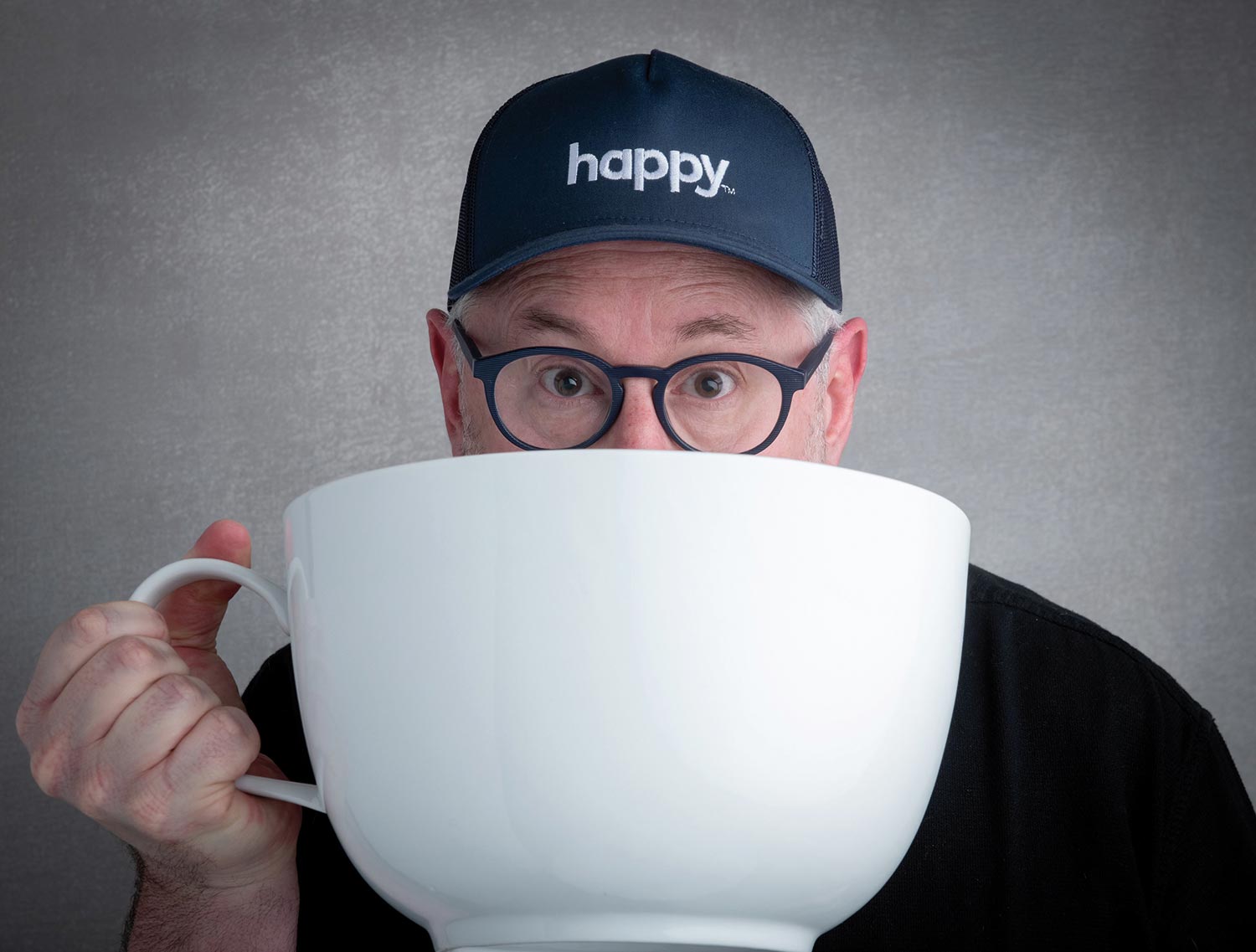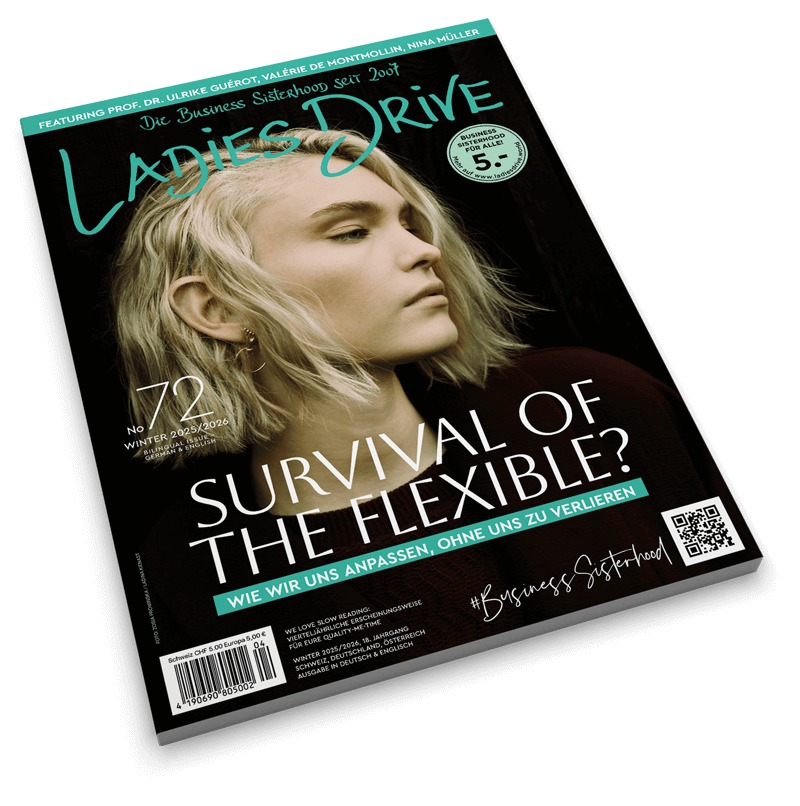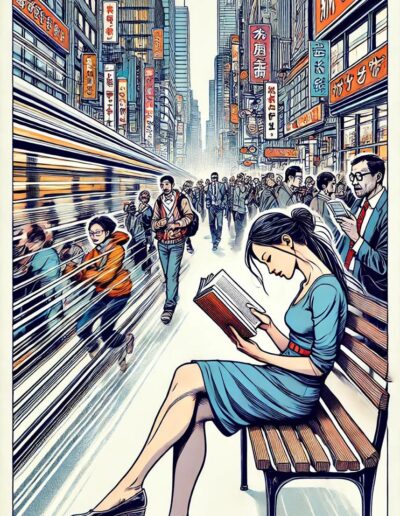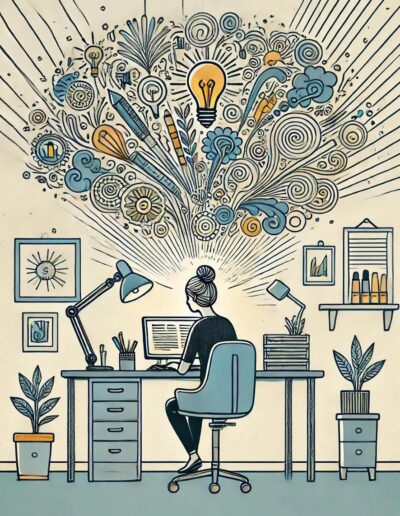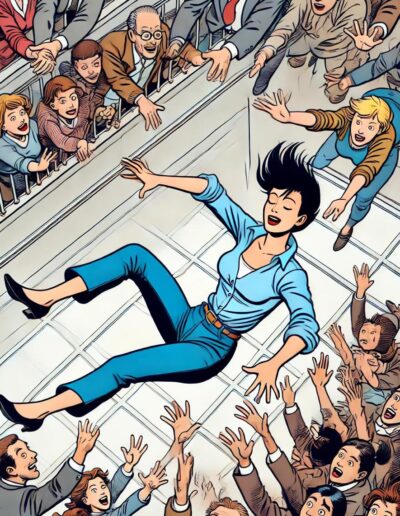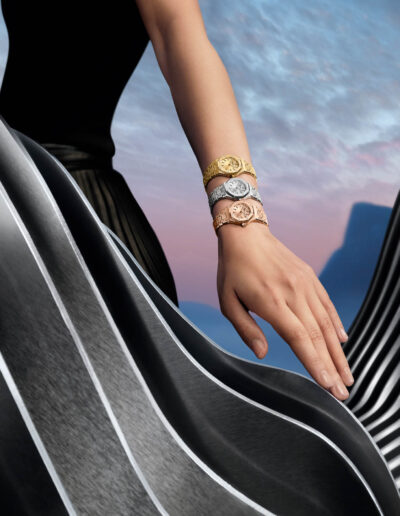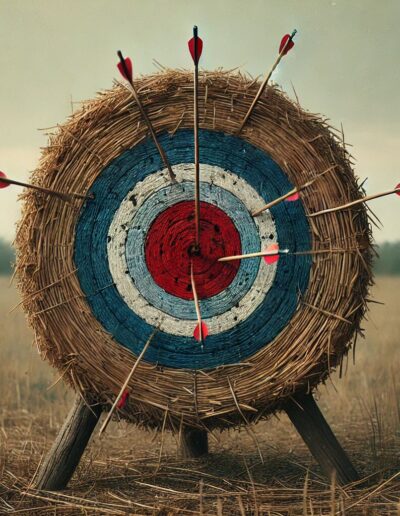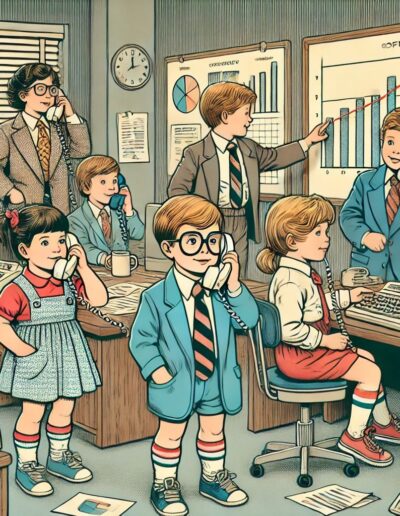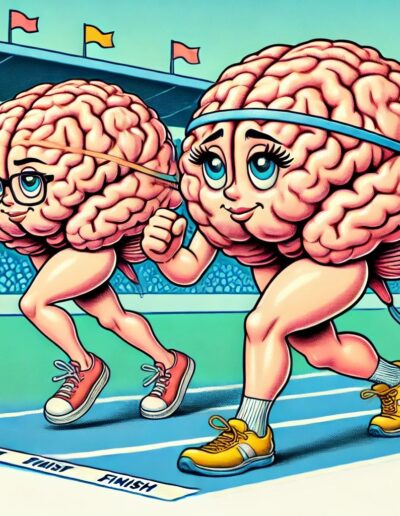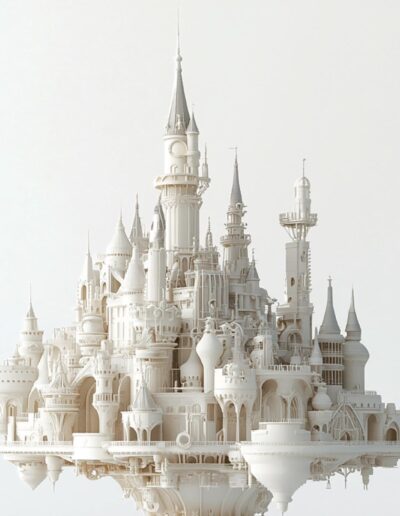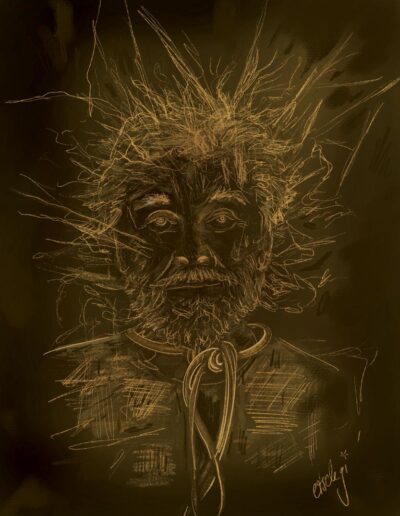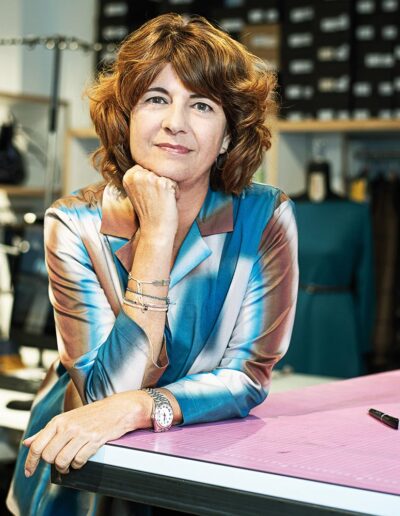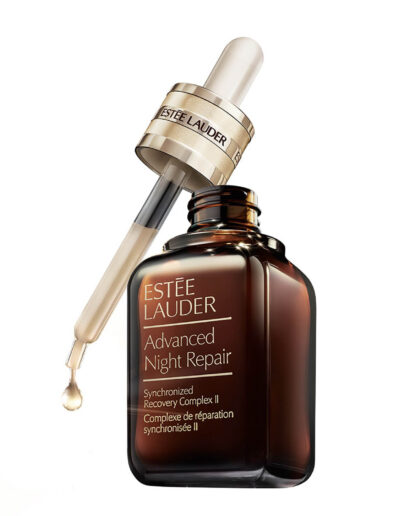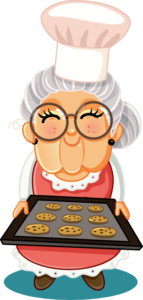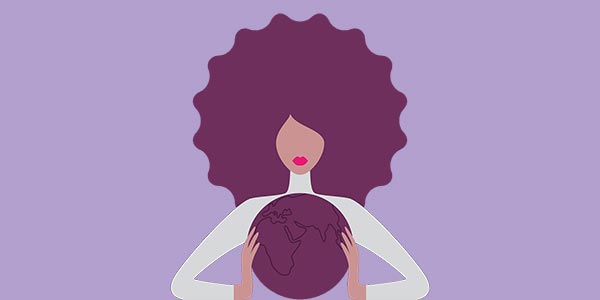Craig Dubitsky (58) is one of the most successful US serial entrepreneurs I have ever met.
He was an investor and founding board member for a transformational household cleaning and personal care brand, method (acquired by SC Johnson), co-founder and creative lead for eos (lip balm in an iconic round packing), and founder of hello oral care (acquired by Colgate Palmolive). His latest baby is a coffee brand called happy®, launched in early 2024 – and imagine this: he trademarked the word “happy” in the US.
With this latest entrepreneurial effort, everything’s a little bit different. He launched it in collaboration with Hollywood A-lister Robert Downey Jr. They both gave substantial shares of the company to an NGO called NAMI (National Alliance on Mental Illness). Why? Because they can. And because the world needs more happiness.
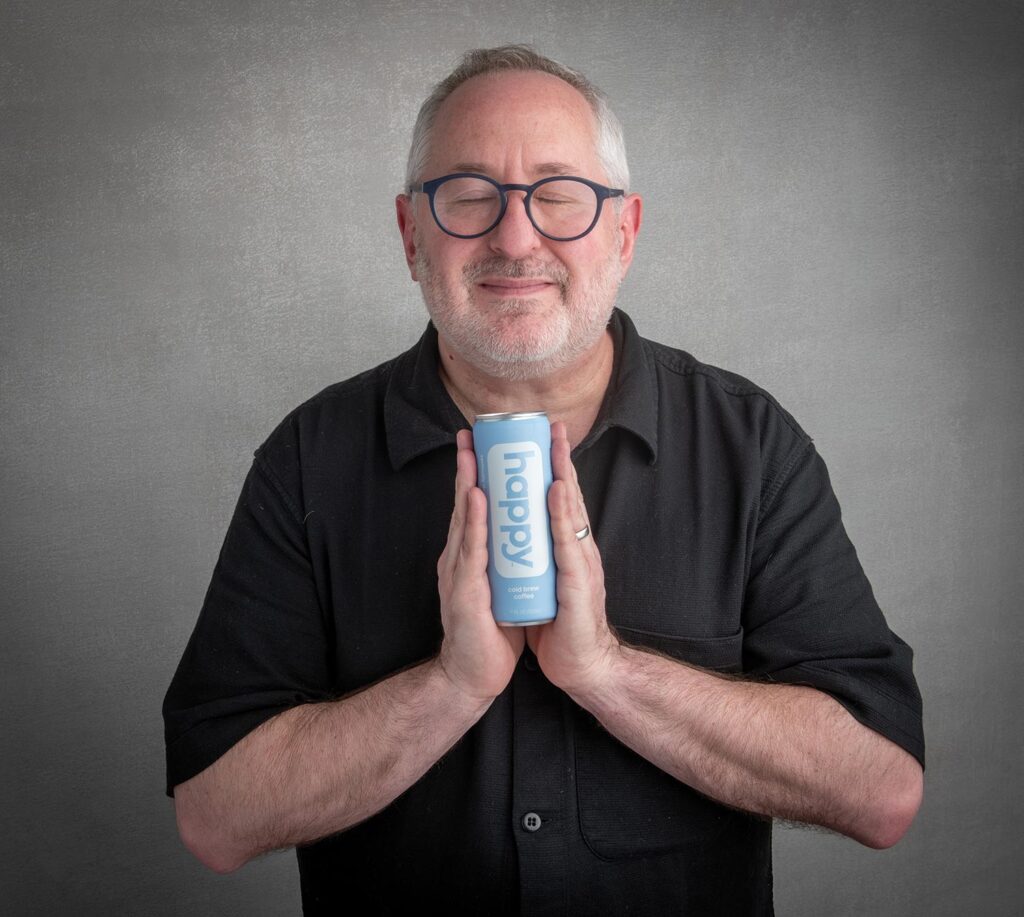
Ladies Drive: You have been super-successful with your entrepreneurial endeavours. But what was the worst business decision you ever made?
Craig Dubitsky: Well, I’ve had more than one. The good news is that the bad decisions ultimately were learning moments. I’ve made plenty of mistakes, but I don’t have a singular “this is the biggest mistake I ever made” kind of a thing. Thinking back, most mistakes were usually related to cultural fit, meaning decisions involving choices in hiring and managing people. And I love people, so it’s hard for me to like actually say anything bad, because all the people I’ve been lucky enough to work with led to good things in the end. That’s a very wishy-washy answer, I get it, but I really do love people. And I take a beat every now and again to appreciate how complex people are and also how lucky I am to have had some of these experiences. Scar tissue is good – it’s actually more like a muscle than a scar, I think.
So, let me rephrase. What was the biggest learning experience you had from these mistakes?
That people make all the difference. If you have the greatest idea, but the wrong people, nothing happens. If you have a modest idea or an inkling of an idea and you have great people, they’ll turn into something incredible. It seems so simple to focus as entrepreneurs and founders on one idea and a set of ideals, but that’s not always the ticket. That’s a starting point, but it’s not really the solution point. The solution point happens because you surround your idea with really incredible, passionate, professional, caring, considerate people, and that’s what makes the magic happen. Our job as founders is to see the invisible, and then surround our ideas with amazing people who can help manifest these things into reality.
Let’s get to know you a little bit. I would love to know what the scent of your childhood is?
What an interesting question. The first thing that comes to mind is …my mother made this incredible chocolate cake. It was really fudgy and incredibly moist, and she would bake this thing and keep it under a glass cake dome. And my memory is lifting off the lid, inhaling the inside of the interior of the lid, and then putting it back down to cover the cake back up. The lid absorbed all the magic of this cake, and it just smelled absolutely incredible. Olfactory recall is very powerful.
So give us an idea of how you were raised?
I grew up in a New Jersey suburb right outside of New York City. My dad was in the textile and apparel business his whole life, and was entrepreneurial as well. My mother was a school teacher, and I think a hidden artist who never really had an outlet. So I was always encouraged as a child just to try things. I grew up around this notion of, you should try things. My upbringing was loving and supportive, basically.
What did you learn from your entrepreneurial father?
Um, that’s a good question because we didn’t really seem to have overlap in a lot of areas. I witnessed the way my father conducted business and the warmth of his personality, and it always stuck with me. He once took me to lunch as a child and it took an hour to walk two blocks in New York City because he just knew everybody between where we were and where we were going. And people loved him. It was all smiles and warmth and hugs and handshakes. He’s a very social person: for him, business and personal life were one and the same. I loved that he had these work relationships and they were incredibly warm. That really stuck with me. I don’t think I’ve ever even told him that – I should and I will.
And what was your first paid job? Did your father have something to do with that?
Oh no, zero. I think when I was eight or nine, I had a lemonade stand in our neighbourhood in our driveway that also included a car wash. I brought in all the other kids in the neighbourhood that I could and I employed them; they would wash the cars and I would pour the lemonade and take the money and upsell and cross-sell various things. Detailing of the car. Special cleaning of the wheels. So that was my first entrepreneurial venture that I am aware of. And of course I then went to spend all the money immediately on comic books (laughing).
I would love to know when you founded your first company?
Well, in university, I had multiple businesses all through college. I had a food business open seven nights a week where I rented space from the university. I had a student trucking business, taking students’ belongings back and forth to school at the start and the end of the academic year. I had a student carpeting company where I got the blueprints for all the dorm rooms and I would let students at the beginning of the year select their top three choices for carpet colour and then I would batch those and buy bulk carpeting and have it custom cut to their dorm rooms. I had four years of undergraduate university that were just money-making experiences for me. I’ve just always been an entrepreneur and seen opportunity everywhere.
And after graduating, it’s a very just bizarre story. I wound up on the floor of the Commodities Exchange in New York City and ultimately became the youngest member of the New York Cotton Exchange and the Financial Instruments Exchange. I was an options market maker for the US dollar futures contract. If anybody bought or sold puts or calls, I was the other side of their trade. That was my first real job. I was a clerk and then I left and started my own company.
You created a lot of brands that are very famous in Europe as well. Tell me what made all of these brands so successful?
There’s a company I led the original investment in called method. It’s a household cleaning products and personal care company, and I was a founding board member and led the original investment in the company. The packaging was one of a kind. No one had ever seen anything like this before. I mean, it was just an incredible rocket ride. It entered US business publication Inc.’s “Inc.500 List” at number seven as the seventh-fastest-growing private company in America after a fairly short amount of time. We had all natural formulations, beautiful design, and there was nothing else really like it. Not even close. So method became a thing. method ultimately was acquired by SC Johnson, a giant global consumer packaged goods company.
Then I started a company called eos. The breakout product was a lip balm shaped like a little sphere. Our first product was a women’s shave cream and then these lip balms. eos became a global phenomenon. The company is still private, and remains owned by my original co-founding partner.
After that I started a company called hello – toothpaste, oral care. It became the fastest-selling, fastest-growing oral care brand in North America, and ultimately we were acquired by Colgate Palmolive. After this I served as the Chief Innovation Strategist for Colgate globally, which was a pretty exciting thing for me. I really loved everything about the experience and people at Colgate – it’s just an incredible company. But I’m an entrepreneur, and I was compelled to start another company because I love to create from scratch. I started a new brand called happy. We make incredible coffee and it’s priced affordably. I really love the idea of thoughtfulness and design, and making everyday things that people can “join” and fall in love with.
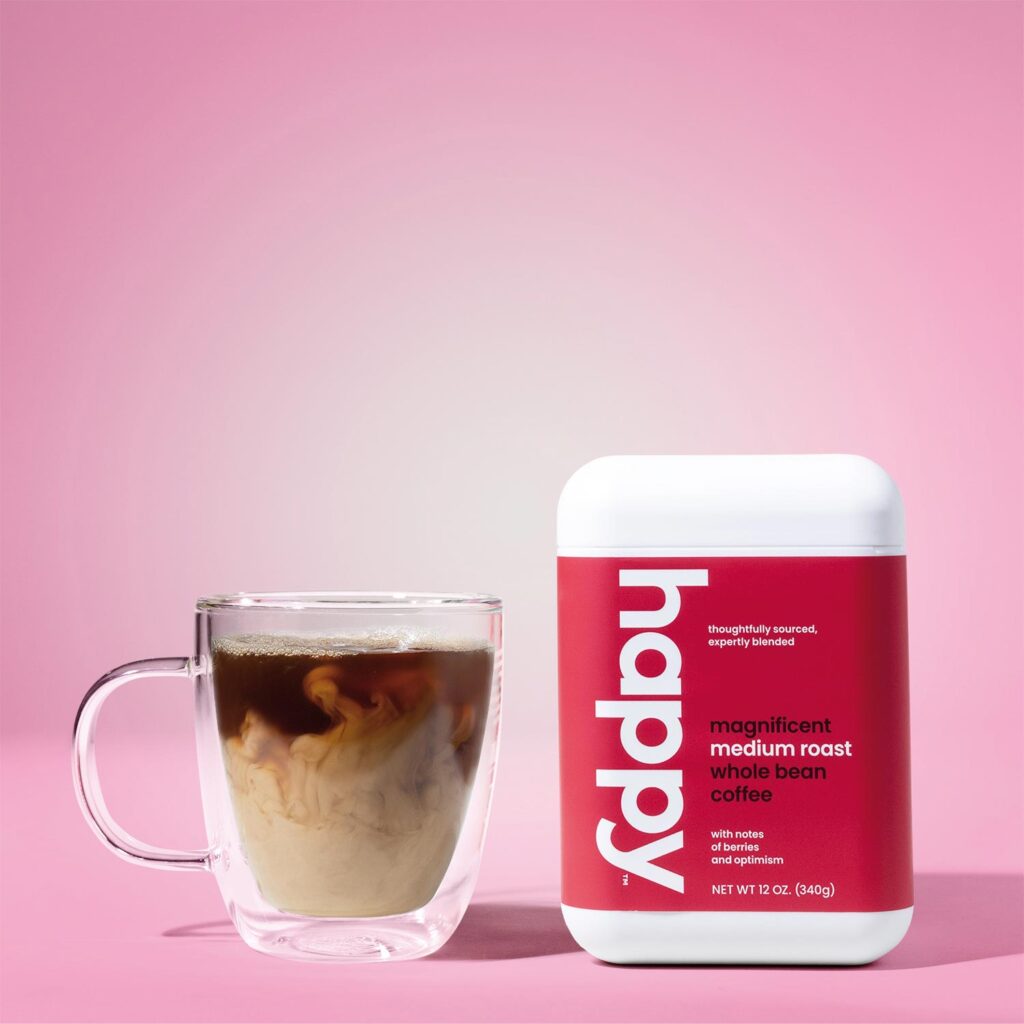
What excited you most about happy, your latest brand?
The idea of liberating the power of design and making good design, thoughtful, intentional design and products available to more people is what gets me really excited. Now we have this incredible coffee and it’s sourced from 35 countries around the world. We have the largest vertically integrated coffee roaster in the world as a partner. We’re very mindful about how we select the beans. And we have something very special: we have one of the first Q graders in the US as a team member. Q graders have to be able to discern over 400 unique attributes of whatever they’re tasting – it’s like a sommelier in the wine world, but with even greater specificity. So we’re really serious about the coffee. And the idea was: how do we make really fine specialty-taste coffee while utilising commercially available beans so we can operate at scale and provide affordability. And how do we make packaging that’s beautiful and differentiated and functional and repurposable, reusable, refillable, and completely recyclable … and that just makes you smile when you look it, touch it, interact with it. That’s why we called it happy, we even trademarked the word happy! And the coffee’s exceptional.
And you have a very famous co-founder, right?
Yes, it’s Robert Downey Jr., he’s the best, and he’s one special human. He’s amazing. And he loves, as in LOVES, coffee. He’s very, very deeply involved and engaged with coffee. We would have launched ten months earlier, but he was so particular about the process and the origins of the beans and the blends and the level of roast. We could give him five different coffees and blindfold him, and he could tell you which coffee was grown at a higher elevation than the next one. He’s like a super-taster, and he’s completely obsessed with all things coffee.
But there is more to the brand than the unique packaging and a Hollywood A-lister as co-founder – you created an amazing social enterprise. Please tell me how and why you did it.
Downey and I were talking, we had this moment where we hit on the fact that not everybody’s happy. And Downey said, “Well, what can we do about that?” My wife has a PhD in clinical psychology, and she was sitting in the room. So I asked her, “Who’s doing anything amazing at scale with mental health?” and she said, “Oh, NAMI, they’re incredible”. NAMI stands for the National Alliance on Mental Illness here in the US – it’s the largest mental health-related entity here, a non-profit which also started 988, the emergency hotline for mental health. If you have an iPhone in the US and say, “Hey, Siri, I feel depressed” – information about NAMI shows up on your screen.
And here’s the thing. This is very sad stuff. I’m 58. When I was a kid, the number one killer of teenagers was car accidents, and number two was childhood leukaemia. Now it’s handguns and suicide that are the number one and number two killers of teens. In addition to this sad fact, one in five adults in the US have some form of mental illness. And I don’t mean intermittent depression, I mean clinical mental illness. The suicide rate in adults has gone up 30% in the past two decades in the US.
Given these circumstances, we thought, well, what if we can help destigmatise mental health? It impacts everybody. Stella, it’s incredible. And in all honesty, I never could have imagined that I would be hearing so many powerful, horrific stories, let alone from people that I know, about severe mental health challenges. This is very serious stuff. NAMI was started by four sets of parents in the middle of the US many decades ago, who had children that were diagnosed with various mental health conditions which back then were like a death sentence for those children. You were institutionalised, and you were a lost soul. It doesn’t have to be that way any longer. So the more time we spent with NAMI, the more we learned about them as an organisation, what they do, the people they help, and the real need there is to provide help and hope to those in need. The 988 emergency phone line they helped create received ten million calls last year, which is unbelievable. They’re doing this really incredible work, and when asked what they hear the most from people, they shared “If only we had known about NAMI sooner”. That sounded like an awareness issue, so we asked, “What if we put information about NAMI on all of our packs, along with a QR code which lets folks get in touch with NAMI and not be heavy-handed about it?” NAMI loved the idea, so that’s what we did from Day One at happy – it wasn’t an afterthought or a bolt-on idea, it was baked in from the very start. People have a bullshit meter – they can see if something’s done only for marketing. To show how serious we are about mental health and this partnership, we gave NAMI a piece of our company. They’re on our capitalisation table, and are an actual owner of the company with us.
Why did you do it?
Because we really wanted to reimagine the relationship between entrepreneurship and philanthropy. That was a bigger idea. We like ideals and ideas, bigger things that people can then join, not transact with, but join and feel something. That’s the real magic – to create feeling. And I refer to that as emotional innovation. Our product has a lot of technical innovation, but the real magic is emotional innovation. Like how do you make something that gets closer to people’s hearts? That’s the thing. In real estate, they say it’s location, location, location. In brands, it’s location, location, too, but in this case, the location is proximity to the heart! And we’re excited to see that what we’re up to with happy seems to be landing with people in a positive way.
I heard you have a lot of success and the company is growing very fast.
Yes, we’re now in many of the largest retailers in the US, including Walmart, Target, Kroger and CVS – we’re in thousands and thousands of doors from a very short start of a few months back. We’re a small team and we have history with each other. We love each other, and we can finish each other’s sentences. That’s why we refer to ourselves as the happy family.
So the key is not to disrupt with an innovation, it’s to delight people. And the more you delight people, the more you end up being disruptive to the people who aren’t delighting them enough. For instance our flavour notes. We have a light roast coffee that calls out notes of cashew and elation. Of course, that’s a little different than what folks are used to when it comes to flavour descriptions – like, elation, what does that mean? Well, we’re called happy. Of course we have things like elation – cues that have emotional touches – it’s an opportunity to engage a little differently. That’s kind of the whole idea – to make folks see, feel and experience things a bit differently, and in a way that brings some joy to the mundane.
Is the collaboration or working together with Robert Downey Jr. an advantage or a disadvantage?
Starting happy with Downey has been an absolute dream – he’s not a spokesperson, he’s my cofounder and partner! When we had our first 1:1 chat, I told him “no disrespect, I’ve seen Marvel movies but I don’t know anything about you. And I didn’t look you up online because I didn’t want to know anything about you unless I heard it from you directly.” We had this very real conversation. We talked a lot about design and brand and what it’s like to build a company and to be an entrepreneur and be an investor. I heard a lot about his deep, deep love of coffee. He’s particular and he’s simply brilliant, quick and hysterical. We talked quite a bit about our spouses, and the impact that had on our respective lives, families and careers. By the end of this conversation, which went for over three and a half hours – which neither one of us was expecting – we were both like, “What just happened? This has been amazing.”
We met together with our spouses, and that really solidified our partnership. I shared with him that in life you can choose your friends, but you can’t choose your family. And when you start a company, it’s like being able to choose your family. So we ended up having this FaceTime call with a Hollywood superhero and his wife. We thought we would talk for maybe ten minutes. And we ended up talking for over two and a half hours. After that my wife said: “No one stopped smiling for two and a half hours. Like, why wouldn’t you do this together?” It was just a bunch of passionate, like-minded people talking. So we went for it. I can’t say enough good things. He’s a really brilliant person. And you won’t find anybody much quicker in speed of processing ideas and connecting dots. He’s funny, and you know, he’s whip smart. Lovely, kind, brilliant, smart, warm and committed – I count myself lucky to have him as a partner.
A lot of coffee brands talk about the coffee – its origin, the geography, the roast, yada yada. All coffee grows along the equatorial band. But we thought, let’s flip the script. Let’s make thoughtfully sourced and meticulously blended and roasted coffee, absolutely, but let’s really focus on people – human beings over beans. People are everything. Coffee’s a commodity. People are not.
What you do is essentially being part of the Kindness Economy.
Yeah, that’s why I never use the word consumer, or employee – we’re all people. As soon as you label people, you create distance. That’s the exact opposite of what you want to create – you want to create proximity and meaning. We don’t speak about target markets. Targets get shot at. I don’t want to be a target, and I don’t want to transact – I want to join something, not merely purchase it.
That’s human-centricity! So, my last question: what has to change so we all have a, let’s say, healthy future? Or what can we, you and me, do to get it going?
I think we’re doing it. We’re two people that talk openly and candidly and without pretence or a preconceived notion as to why we should be having a discussion, right? And the more human beings talk and realise we’re so connected and connectable, we can matter to each other and we can transcend time zones and we can transcend gender, politics, religion, age … we can transcend a lot of things so long as we can engage in respectful conversations. Having conversations that allow us to remove all the barriers that people put in place telling us we’re different from one another will allow us to actually appreciate each other and the magic of what we all have in common – there’s magic in appreciating “sameness” if you will. Understanding and celebrating our similarities as well as our unique attributes is what’s going to change things I think.
The more people can communicate in a meaningful way and share without the baggage, the better off we’re all going to be. People tend to “complexify” things. If we all could sit and talk, maybe over a cup of coffee, that would help curb loneliness, positively impact mental health, and lead to some incredibly positive outcomes … and in the end, more happy people.
